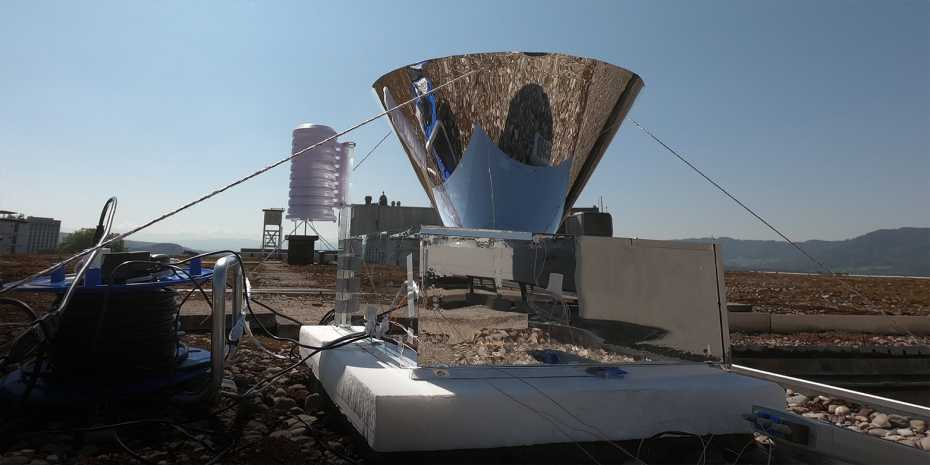
Condenser innovation can tap airborne water reservoir

Swiss scientists have developed a method for extracting water out of the air for use in countries that experience high humidity but suffer from a scarcity of groundwater.
The federal technology institute ETH Zurich has designed a cone that self-cools, allowing it to condense moisture in the air without using energy.
Under ideal conditions – high humidity and little wind or sun – the condenser can harvest up to 0.53 decilitres of drinking water per square metre of surface area every hour.
“This is close to the theoretical maximum value of 0.6 decilitres per hour, which is physically impossible to exceed,” states team researcher Iwan HächlerExternal link.
The key to trapping air moisture in this way is to have a surface area that is cooler than the air temperature.
Scientists achieved this with a glass pane, which combined with other materials and coatings both reflects solar radiation and expels its own heat into the atmosphere.
The research team says the condenser is cost effective to construct as it does not use expensive or rare materials.
It would be particularly useful in coastal areas, such as Saudi Arabia, India or Israel. Conditions in sub-Saharan Africa are however not suitable for air moisture extraction using the device.
Researchers suggest it could be used in combination with other drinking water extraction techniques, such as desalination plants, to increase supply in parched areas of the world.
The innovation was presented in the journal Science AdvancesExternal link on Wednesday.

In compliance with the JTI standards
More: SWI swissinfo.ch certified by the Journalism Trust Initiative

























You can find an overview of ongoing debates with our journalists here . Please join us!
If you want to start a conversation about a topic raised in this article or want to report factual errors, email us at english@swissinfo.ch.